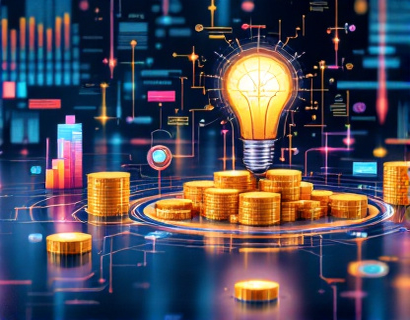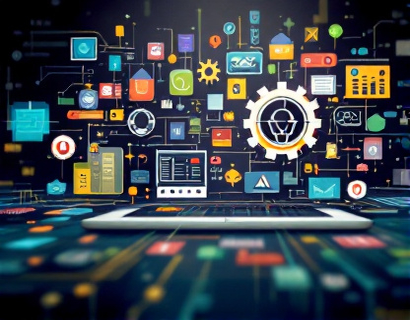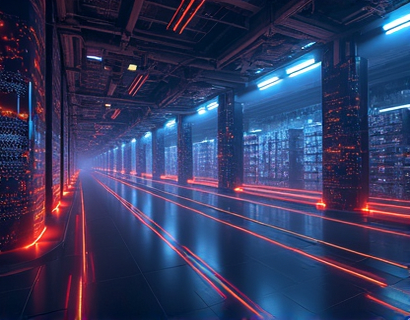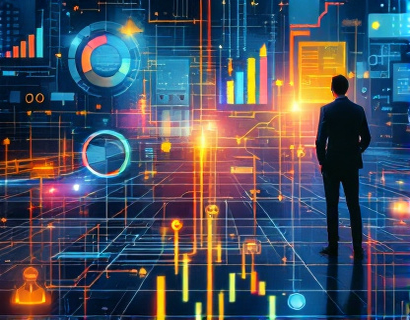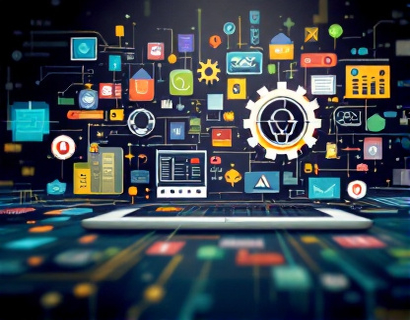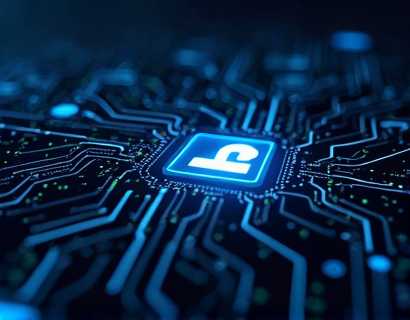Seamless AI and Blockchain Integration: A Business User's Guide to Digital Transformation Success
The integration of Artificial Intelligence (AI) and blockchain technology represents a pivotal shift in the digital landscape, offering businesses unprecedented opportunities for efficiency, security, and innovation. This guide is designed to provide business leaders with essential strategies and insights to navigate the complexities of merging these two transformative technologies. By understanding the synergies between AI and blockchain, companies can drive successful digital transformation, enhancing their competitive edge in an increasingly tech-driven world.
Understanding AI and Blockchain
Artificial Intelligence, encompassing machine learning, natural language processing, and predictive analytics, enables machines to perform tasks that traditionally required human intervention. AI's ability to analyze vast datasets, identify patterns, and make decisions autonomously makes it a powerful tool for optimizing business processes and driving innovation.
Blockchain, on the other hand, is a decentralized ledger technology that ensures transparency, immutability, and security in transactions. By recording data across a network of computers, blockchain eliminates the need for intermediaries, reduces fraud, and enhances trust among parties. The combination of AI and blockchain leverages the strengths of both technologies, creating a robust framework for digital transformation.
Enhancing Efficiency Through AI and Blockchain Integration
One of the primary benefits of integrating AI and blockchain is the significant enhancement in operational efficiency. AI can automate routine tasks, such as data entry and report generation, freeing up human resources for more strategic activities. Blockchain's smart contracts can further streamline processes by automatically executing transactions when predefined conditions are met, reducing manual intervention and errors.
For instance, in supply chain management, AI can predict demand and optimize inventory levels, while blockchain ensures transparent and tamper-proof tracking of goods from origin to destination. This dual approach minimizes delays, reduces costs, and improves overall supply chain efficiency.
Boosting Security with AI and Blockchain
Security is a paramount concern in the digital age, and the integration of AI and blockchain offers robust solutions. AI's advanced analytics capabilities can detect anomalies and potential security threats in real-time, enabling proactive measures to safeguard sensitive data. Blockchain's inherent security features, such as cryptographic hashing and consensus mechanisms, provide an additional layer of protection against cyberattacks.
By combining these technologies, businesses can create a secure environment where data integrity is maintained, and unauthorized access is minimized. For example, in the financial sector, AI can monitor transactions for suspicious activities, while blockchain ensures that all transactions are recorded securely and transparently, reducing the risk of fraud and enhancing customer trust.
Fostering Innovation and New Growth Opportunities
The synergy between AI and blockchain opens up new avenues for innovation and growth. AI's ability to process and analyze large datasets can uncover insights that drive product development and service enhancement. Blockchain's decentralized nature fosters collaboration and trust among diverse stakeholders, facilitating the creation of new business models and ecosystems.
Consider the healthcare industry, where AI can analyze patient data to personalize treatment plans, while blockchain ensures secure and compliant sharing of medical records among healthcare providers. This integration not only improves patient care but also opens opportunities for innovative services and partnerships.
Challenges and Considerations
While the benefits of AI and blockchain integration are substantial, businesses must be aware of the challenges and considerations involved. Technical complexity is a significant hurdle, as integrating these technologies requires specialized knowledge and expertise. Companies should invest in training and hiring professionals who can navigate the intricacies of AI and blockchain.
Another consideration is the regulatory landscape. As AI and blockchain are relatively new, regulations are still evolving. Businesses must stay informed about local and international laws to ensure compliance and avoid legal pitfalls. Additionally, the high initial costs of implementation and the need for ongoing maintenance should be factored into the decision-making process.
Strategies for Successful Integration
To successfully integrate AI and blockchain, businesses should adopt a strategic approach. Here are key steps to consider:
- Conduct a thorough assessment of current processes and identify areas where AI and blockchain can add value.
- Develop a clear roadmap that outlines the integration goals, timelines, and resources required.
- Invest in building a skilled team or partner with experts who have experience in both AI and blockchain.
- Start with pilot projects to test the integration and refine the approach based on feedback and results.
- Ensure robust data governance practices to maintain data quality and security throughout the integration process.
By following these strategies, businesses can navigate the integration journey smoothly and maximize the benefits of AI and blockchain.
Case Studies and Real-World Applications
Several industries have already begun to leverage the combined power of AI and blockchain. In the logistics sector, companies like Maersk and IBM have collaborated on a blockchain-based platform that uses AI to optimize shipping routes and track cargo in real-time, reducing costs and improving efficiency.
In the realm of finance, JPMorgan Chase has developed an AI-powered blockchain solution called CODI (Contract Digitization Initiative) to streamline trade processing. This integration reduces manual errors, accelerates transaction times, and enhances security.
These case studies demonstrate the practical applications and positive outcomes of AI and blockchain integration, serving as inspiration for other businesses looking to embark on a similar journey.
Future Trends and Predictions
The future of AI and blockchain integration is promising, with several trends shaping the landscape. One notable trend is the increasing adoption of decentralized finance (DeFi) platforms, which combine AI-driven analytics with blockchain's decentralized architecture to offer innovative financial services.
Another trend is the rise of AI-powered blockchain governance, where machine learning algorithms help manage and optimize blockchain networks, ensuring scalability and security. As these technologies continue to evolve, businesses that embrace them early will be better positioned to capitalize on emerging opportunities.
Conclusion
Integrating AI and blockchain represents a transformative journey for businesses aiming to thrive in the digital age. By enhancing efficiency, bolstering security, and fostering innovation, this integration offers a competitive advantage and opens new growth pathways. While challenges exist, a strategic and informed approach can lead to successful digital transformation. Business leaders who commit to understanding and leveraging the synergies between AI and blockchain will be at the forefront of the next technological revolution.













